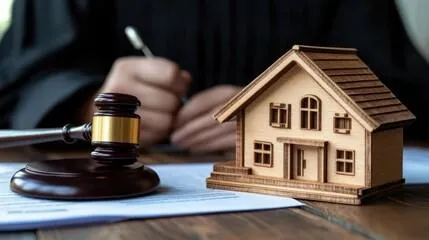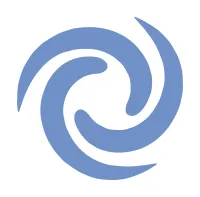Welcome to Our Blog
Insights and tips to keep your living environment safe and healthy.

Understanding Mold Inspection and Tenant Rights in Rentals
Mold Inspection and Its Connection to Tenant Rights and Responsibilities

Imagine stepping into your rental property, excited to make it your own, only to be greeted by a musty smell that makes you feel uneasy. You glance around and discover unsightly mold spots on the walls. Mold is not just an eyesore; it can impact your health, safety, and overall living experience. For many tenants in California, especially in humid areas like coastal Santa Barbara, understanding mold inspection and its connection to tenant rights is important for ensuring a safe living environment.
With the increasing awareness of indoor air quality issues and health concerns related to mold exposure, this comprehensive guide will explore the complex relationship between mold inspection, tenant rights, and responsibilities.
Understanding Mold and Its Risks
What Is Mold?
Mold is a type of fungus that thrives in damp, warm environments. It reproduces through spores that can be found in the air, and when these spores land on a wet surface, they can grow rapidly. Common indoor molds include Aspergillus, Penicillium, and Stachybotrys chartarum (often referred to as black mold).
Health Implications
Mold exposure can lead to various health issues, especially for individuals with pre-existing conditions such as asthma, allergies, or weakened immune systems. Here are some common health effects associated with mold exposure:
Respiratory Problems: Mold spores can irritate the airways, leading to coughing, wheezing, and difficulty breathing. For those with asthma, mold exposure can exacerbate symptoms, leading to severe attacks.
Allergic Reactions: Individuals may experience allergic reactions, including sneezing, runny nose, and skin rashes when exposed to mold.
Fungal Infections: In rare cases, mold exposure can lead to more severe health complications, including respiratory fungal infections.
Cognitive and Neurological Effects: Emerging research suggests that prolonged exposure to mold can potentially affect cognitive functions and mental health. Individuals may experience symptoms like memory loss, difficulty concentrating, and mood swings.
The Importance of Mold Inspection
Given the potential health risks, mold inspection becomes a critical process for tenants and property owners. Regular inspections can help identify hidden mold growth and ensure that any issues are addressed promptly.
Tenant Rights Regarding Mold
Understanding Your Rights
In California, tenants have specific rights when it comes to mold and living conditions. The state’s Health and Safety Code mandates that landlords maintain rental properties in a habitable condition, which includes addressing mold problems. Here are key rights that tenants should be aware of:
Right to a Safe Environment: Tenants have the right to live in a property free from mold and other hazards. If mold is present, landlords are legally obligated to address the issue promptly.
Right to Disclosure: Landlords must disclose any known mold issues before renting a property. This disclosure is crucial for tenants to make informed decisions.
Right to Request Repairs: Tenants can request repairs for mold issues. If a landlord fails to respond, tenants may have the right to take further action, such as withholding rent or seeking legal advice.
Right to Healthy Air Quality: Under California law, landlords must ensure that indoor air quality is maintained. This includes addressing mold, which can significantly affect air quality.
Right to Habitability: Tenants are entitled to live in a habitable space, which means landlords must ensure that properties meet certain health and safety standards, including those related to mold.
Local Regulations
It’s important to be aware of local regulations that may impact mold inspection and tenant rights. In Santa Barbara, for example, the city has specific codes related to mold and indoor air quality. Understanding these regulations can empower tenants to advocate for their rights effectively.
Landlord Responsibilities
What Landlords Must Do
While tenants have rights, landlords also bear significant responsibilities regarding mold inspections and remediation:
Conduct Regular Inspections: Landlords should regularly inspect properties for mold, especially in areas prone to moisture, such as bathrooms and kitchens.
Respond Promptly to Reports: If a tenant reports mold, landlords must respond promptly to assess and remediate the issue. Delays can lead to worsening conditions and legal complications.
Remediation: Landlords are responsible for hiring qualified professionals to conduct mold remediation. This process includes removing mold, addressing the source of moisture, and ensuring the property is safe for occupancy.
Compliance with Building Codes: Landlords must ensure their properties comply with local building codes related to mold and moisture control. This includes using appropriate materials and ensuring proper ventilation.
Communication with Tenants: Landlords should maintain open lines of communication with tenants regarding mold issues and remediation plans. This transparency helps build trust and ensures that tenants are informed about the steps being taken.
Consequences of Non-Compliance
Failure to comply with mold-related responsibilities can lead to serious consequences for landlords, including:
Legal Liability: Landlords may be held liable for health issues arising from mold exposure if they fail to act promptly.
Decreased Property Value: Properties with unresolved mold issues may see a decrease in market value, making it difficult to sell or rent.
Loss of Rental Income: In severe cases, landlords may lose rental income if tenants choose to vacate due to unsafe living conditions.
Reputation Damage: Poor handling of mold issues can damage a landlord's reputation, making it challenging to attract new tenants.
The Mold Inspection Process

Importance of Mold Inspections
Mold inspections are crucial for identifying existing mold problems and preventing future growth. A thorough inspection can help tenants and landlords:
Identify Hidden Mold: Mold often grows in concealed areas, such as behind walls or under carpets. Inspections can reveal these hidden growths before they become severe.
Assess Moisture Levels: Inspectors can measure moisture levels in various materials and identify areas prone to mold growth.
Evaluate Air Quality: Mold inspectors often perform air quality tests to determine the concentration of mold spores in the indoor environment.
Steps Involved in Mold Inspection
Visual Inspection: A thorough visual inspection of the property is the first step in identifying visible signs of mold growth. Inspectors look for discoloration, water stains, and musty odors.
Moisture Assessment: Inspectors use moisture meters to measure the moisture content in building materials. High moisture levels can indicate potential mold growth.
Air Sampling: Air samples are collected and analyzed to detect mold spores in the indoor environment. This helps assess the overall air quality and identify specific mold types.
Surface Sampling: Swabs, tapes, or bulk samples may be taken from surfaces to identify the presence and type of mold. This provides more detailed information about the mold contamination.
Reporting and Recommendations: After the inspection, a detailed report is provided, outlining findings, potential health risks, and recommended remediation steps.
Mold Remediation and Tenant Rights
Understanding Mold Remediation
Mold remediation involves removing mold from a property and addressing the underlying moisture issues that caused its growth. Effective remediation is essential for meeting building code requirements and safeguarding occupant health. While Advanced Clean Air Solutions is not a remediation company, we specialize in helping clients identify the source of moisture, correct it, and ensure that mold is properly cleaned and remediated if needed. There are various approaches to remediation, and we work with trusted partners in remediation, landscape drainage, leak detection, and repair to ensure the solution is both efficient and effective in fixing the problem.
Steps in Mold Remediation
Assessment and Planning: A thorough assessment is conducted to determine the extent of mold growth and identify the source of moisture. A remediation plan is developed based on these findings.
Containment: Affected areas are isolated to prevent the spread of mold spores during the remediation process. This may involve sealing off areas and using negative air pressure to contain the mold.
Removal of Contaminated Materials: Moldy materials, such as drywall or carpeting, may need to be removed and disposed of properly to eliminate the source of contamination.
Cleaning and Disinfection: All surfaces in the affected area are cleaned and disinfected using appropriate methods and chemicals to eliminate any remaining mold spores.
Moisture Control Measures: After remediation, measures are taken to address the underlying moisture issues, such as repairing leaks, improving drainage, or enhancing ventilation.
Final Inspection and Clearance Testing: A final inspection is conducted to ensure that all mold has been removed and that the area is safe for occupancy. Clearance testing may also be performed to confirm that mold levels are within acceptable limits.
Advanced Clean Air Solutions: Your Mold Inspection Partner
For tenants and landlords alike, addressing mold issues effectively requires professional expertise. At Advanced Clean Air Solutions, we specialize in comprehensive mold inspection services tailored to meet the unique needs of residents in Santa Barbara and beyond.
Why Choose Advanced Clean Air Solutions?
Experienced Professionals: Our team of certified mold inspectors and drainage experts has years of experience in identifying and addressing mold and moisture problems. We use advanced techniques and state-of-the-art equipment to ensure thorough inspections.
Tailored Solutions: We understand that every property is different. Our approach is customized to meet the specific needs of your situation, whether it's a residential home, commercial building, or an ADU.
Commitment to Health and Safety: Your health and safety are our top priorities. We conduct inspections with a focus on identifying potential health risks and providing effective solutions to mitigate them.
Transparency and Communication: We believe in open communication with our clients. Throughout the inspection and remediation process, we keep you informed and involved, ensuring you understand the steps being taken.
Comprehensive Services: From initial inspections to complete remediation and ongoing support, we provide a full spectrum of services to address mold issues effectively.
Local Expertise: As a local business, we are familiar with the specific mold-related challenges faced by residents in Santa Barbara. We’re committed to helping
Empowering Tenants and Landlords
Mold inspection is a critical aspect of maintaining a safe and healthy indoor environment, particularly concerning tenant rights and responsibilities. By understanding the importance of mold inspections, adhering to relevant building codes, and implementing effective remediation strategies, both tenants and landlords can protect health, preserve property, and ensure compliance with regulations.
Your Health Matters—Get Your Mold Inspection Today!
If you suspect mold growth in your property, don’t hesitate to contact Advanced Clean Air Solutions. Our professionals are ready to help ensure a healthier living and working environment for everyone. Let us partner with you to safeguard your home from mold and its associated risks.
Copyright @ 2026 - All rights reserved
Advanced Clean Air Solutions, LLC
351 Paseo Nuevo 2nd Floor #1033
SANTA BARBARA, CA 93101

